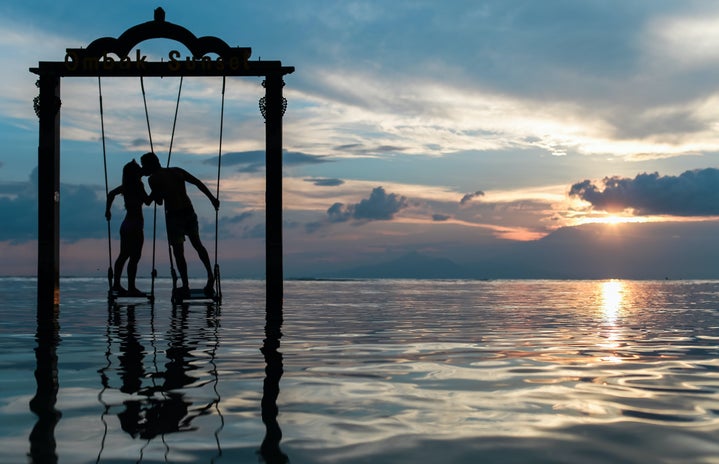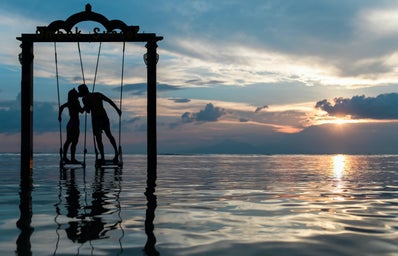This past summer, the second season of Love Island USA aired amid the pandemic. Due to the state of the world, the reality TV show was not shot on a beautiful tropical island as the title suggests, but on the rooftop of a Vegas building where all contestants were strictly monitored in a COVID-free ‘bubble.’
While ‘normal life’ remains a little different, reality TV adds a bit of solace to what once was. However, between the explicit ‘trashiness’ and drama, reality TV dating shows can send subdued toxic messages about dating. This is especially the case of Love Island, where grown men are called boys and grown women are called girls.
Disclaimer: Although gender extends beyond traditional binary classifications, for the purposes of this article, only male and female gender roles will be discussed. Especially since the contestants on Love Island fall into these binary classifications.
On a show where contestants say statements like “I am ready for something serious” and “I’m looking for a mature man/woman,” it seems somewhat paradoxical that the contestants are addressed as the ‘boys’ and the ‘girls’. And not in a ‘Saturdays are for the boys’ manner, which refers to camaraderie among men. It refers to a relationship between a boy and a girl, not a man and a woman, which contradicts the desire for maturity which the contestants indicate they want.
This becomes strikingly obvious during the season’s ‘re-coupling ceremonies’ where the contestants profess their desire for a member of the opposite sex. When the contestants announce who they would like to ‘couple up’ with, they do not refer to their new partner as the man or woman they had previously addressed desire for, but the contestants say, “the boy/girl I want to couple up with is…”
Now, listen. It is completely normal to refer to grown adults as a boy or a girl under certain circumstances. This argument is not for the crucifixion of this practice, but in the case of maturity, it is clear. No man/woman seeking a mature partner would address their partner as a girl/boy.
In the case of Love Island, an argument could be made that it is the show, not the contestants, who enforce this practice. However, it is all the same. The series seeks people best suited for entertainment, qualities that often do not coincide with maturity. Despite these contestants’ belief that they are mature and ready for a healthy relationship, their behaviour does not reflect this. Most contestants, time after time, accept toxic behaviour that inevitably reflects immaturity in a relationship.
Moreover, combining a desire to find real love with a cash prize of a $100,000 does not help. Through an incentive to appear in love as quickly as possible so that the chances of being titled the winner is higher, contestants disregard warning signs that a relationship will not last to get the prize.
Yes, reality TV is reality TV. Yes, it is just a show that is meant for entertainment purposes. However, sending the message that this sort of behaviour in a relationship is acceptable to the young adults to watch this show is teaching its viewers how to form short-term paradoxical relationships. Love Island shifts the conception of real maturity to accept drama, lying, toxicity, gas-lighting, cheating and anything else that makes for great television but horrible relationships.
Many reality TV dating shows shift the public perception of what is acceptable in a relationship for young adults. By stating a desire for maturity but contradicting this desire by accepting toxic behaviour, viewers learn to accept warning-signs in relationships. Grown men should not be called boys and grown women should not be called girls if the goal is to create a thriving, long-term and mature relationship.



